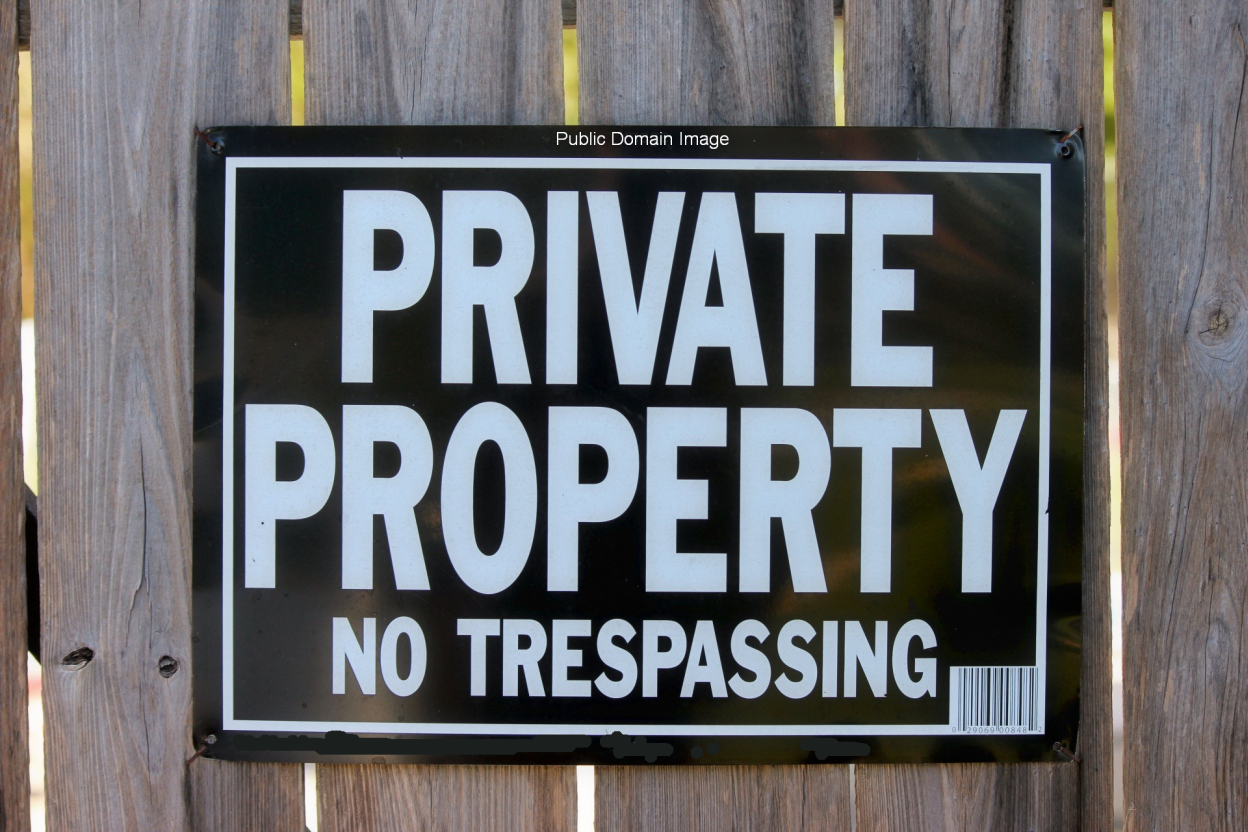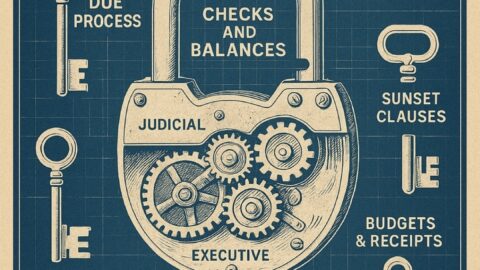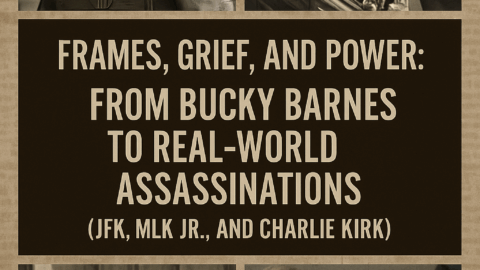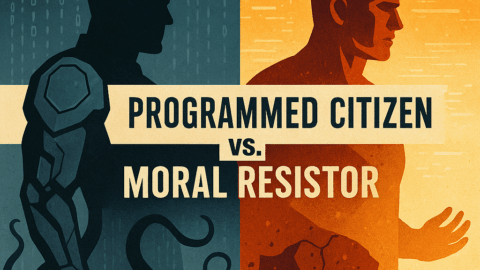Property: “The thing owned; that to which a person has the legal title, whether in his possession or not. It is one of the greatest blessings of civil society that the property of citizens is well secured.” (1)
While I was a police officer, I responded to an unknown number of calls of service regarding infringements on property rights. It ranged from criminal mischief, thefts, fraud, and trespassing, just to mention the most basic property crimes.
The course outcomes varied, from arrests to warnings, to forwarding the information to the city or county attorneys, and so forth. But one thing I found beneficial to myself, the people involved, and the community at large was to empower the individuals by educating them regarding property rights involved in the matter.
Remarkably, I found that this helped de-escalate things and that people could solve their own problems in the future.
It was fundamental to determine who owned the property. Once the investigation determined the rightful owner of the object in question, the analyzing started to branch out from there to ascertain the act and intention of the actors and determine if a property infringement had occurred and what the next step would be in the inquiry.
Property rights are one of the key and essential components to the American way of life and are enshrined in the documents leading up to the divorce with the British government and in the documents finalizing that separation: The US Declaration of Independence; the Articles of Confederation; the United States Constitution; and the Bill of Rights.
Here, John Locke proclaims that “possession” or “goods of another” is equivalent to property:
“The state of nature has a law of nature to govern it, which obliges every one: and reason, which is that law, teaches all mankind, who will but consult it, that being all equal and independent, no one ought to harm another in his life, health, liberty, or possessions… (and) when his own preservation comes not in competition, ought he, as much as he can, to preserve the rest of mankind, and may not, unless it be to do justice on an offender, take away, or impair the life, or what tends to the preservation of the life, the liberty, health, limb, or goods of another.” (2)
As a police officer, one of the hardest property infringements to solve, were those that came in “competition” or clashed with somebody else’s rights. Sometimes this would take a team of officers, supervisors and city or county attorney to solve.
Sometimes, it would even lead to civil matters, where the two sides would have to take in front of the judge their evidence or case to determine these matters.
I had a friend suggest reading, The Law, by Frederic Bastiat, to help me understand property rights. As I started to analyze the concept of the definition of property, I started to run into a common denominator: a trio of words, and chain of ideas, that formed a framework and model critical to our nations and individual freedom.
The triumvirate of ideas and trio of words were life, liberty and property.
Which came first, laws or property?
“Life, liberty, and property do not exist because men have made laws. On the contrary, it was the fact that life, liberty, and property existed beforehand that caused men to make laws in the first place.” — Frederic Bastiat (3)
It reminds me of that timeless question: which came first, the chicken or the egg. In this case above, it was settled, mankind and property rights predated government and laws.
How important are property rights?
“The moment the idea is admitted into society, that property is not as sacred as the laws of God, and that there is not a force of law and public justice to protect it, anarchy and tyranny commence.”
— John AdamsProperty is “as sacred as the laws of God” and if it is not protected anarchy and tyranny will spread. Let’s follow the reason why property is critical and how it effects our freedoms and liberty.
What is the relationship between property and liberty?
“Property, the right to enjoy the fruits of one’s labor, the right to work, to develop, to exercise one’s faculties, according to one’s own understanding, without the state intervening otherwise than by its protective action; this is what is meant by liberty.” — Frederic Bastiat (3)
We can see how Life, liberty and property has set a precedence in order of importance and priority as they existed before government and laws.
“It is not true that the legislator has absolute power over our persons and property, since they pre-exist, and his work is only to secure them from injury. It is not true that the mission of the law is to regulate our consciences, our ideas, our will, our education, our sentiments, our works, our exchanges, our gifts, our enjoyments.” The legislators/government, “mission is to prevent the rights of one from interfering with those of another, in any one of these things.” — Frederic Bastiat (3)
As legislators pass laws, they must not infringe on life, liberty, and property. If the legislatures start to pass laws in violation of these natural, inherent, and unalienable rights, a slippery slope begins, justice is perverted and tyranny reigns.
Lawmakers must consider the triumvirate of life, liberty, and property as sacred when protecting we the people.
“The law is the collective organizations of the individual’s right to lawful defense of his life, liberty and property. When it is used for anything else, no matter how noble the cause, it becomes perverted and justice is weakened. Thus, the law has become perverted by stupid greed and false philanthropy.” –Frederic Bastiat (3)
Here’s what James Madison, a major architect of the US Constitution had to say on this topic:
“It is sufficiently obvious, that persons and property are the two great subjects on which Governments are to act; and that the rights of persons, and the rights of property, are the objects, for the protection of which Government was instituted. These rights cannot well be separated. The personal right to acquire property, which is a natural right, gives to property when acquired, a right to protection, as a social right.”
What we can learn from what was written and expressed, is the object or mission of good government foundation is based on “two great subjects”, which are “the rights of persons, and the rights of property”. Governments are “instituted” to protect life, liberty and property, not destroy them.
Let’s reaffirm what good government is all about
“Government is instituted to protect property of every sort; as well that which lies in the various rights of individuals, as that which the term particularly expresses. This being the end of government, that alone is a just government which impartially secures to every man whatever is his own.” –-James Madison, Essay on Property, 1792
In conclusion for part one
“A wise and frugal government, which shall leave men free to regulate their own pursuits of industry and improvement, and shall not take from the mouth of labor the bread it has earned — this is the sum of good government.” – Thomas Jefferson, First Inaugural Address, 1801
(1) “Property” https://webstersdictionary1828.com/Dictionary/property
(2) John Locke, Two Treatises of Government, ed. Thomas Hollis (London: A. Millar et al., 1764). 12/16/2019.
(3) The Law by Frederic Bastiat







